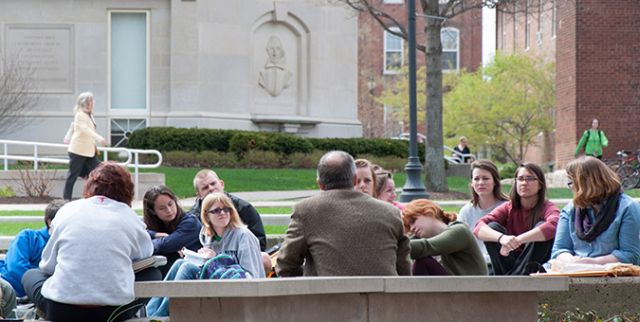
Philosophy Faculty Publications
Document Type
Article
Publication Date
2006
Publication Source
Society for Historians of the Gilded Age and Progressive Era Newsletter
Abstract
In Newer Ideals of Peace (1907), Addams notes the coming of a “beneficent and progressive patriotism,” a “newer patriotism” that may grow large enough “to soak up the notion of nationalism.” She charts rising cooperation and fellowship within cosmopolitan cities and across national boundaries. Not knowing what to call this phenomenon, Addams writes, “We are driven to the rather absurd phrase of “cosmic patriotism.”
What is she talking about? The first several times I read Newer Ideals, a question tugged in the back of my head: what is this book about? I had too much respect for Addams as a theorist to accept George Herbert Mead’s assessment of the book: “One does not feel ... the advance of an argument with measured tread.” Nor could I rest easy with Allen Davis’s comment in his 1973 biography, where he echoes Florence Kelley’s concern that the book was more about domestic social reform than about international peace.
I propose that we can make sense of Newer Ideals if we consider Addams’s use of social evolutionary theory as a savvy rhetorical strategy in which she uses the vocabulary of her opponents to subvert their arguments. Also, when we place her call for cosmic patriotism and spiritual internationalism in the context of pragmatist analysis, the phrases make good sense.
Inclusive pages
4-6
Document Version
Postprint
Copyright
Copyright © 2006, Society for Historians of the Gilded Age and Progressive Era
Publisher
Society for Historians of the Gilded Age and Progressive Era
Volume
16
Issue
1
eCommons Citation
Fischer, Marilyn, "Cosmic Patriotism and Spiritual Internationalism: Addams’s Newer Ideals of Peace" (2006). Philosophy Faculty Publications. 154.
https://ecommons.udayton.edu/phl_fac_pub/154
Included in
Philosophy Commons, Politics and Social Change Commons, Social Psychology Commons, Sociology of Culture Commons



Comments
The document available for download is the author's accepted manuscript, provided by permission of the publisher. Permission documentation is on file.